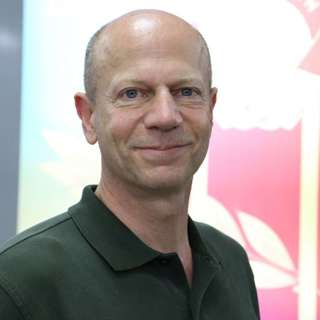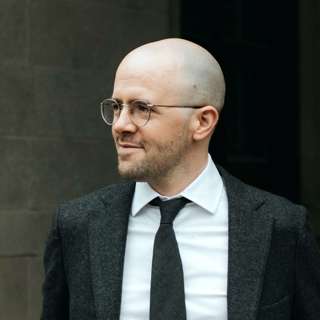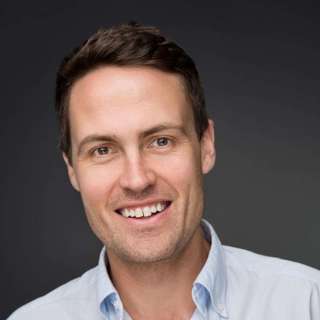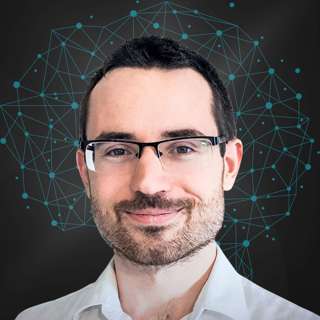
#93 – Andy Weber on rendering bioweapons obsolete & ending the new nuclear arms race
COVID-19 has provided a vivid reminder of the power of biological threats. But the threat doesn't come from natural sources alone. Weaponized contagious diseases — which were abandoned by the United States, but developed in large numbers by the Soviet Union, right up until its collapse — have the potential to spread globally and kill just as many as an all-out nuclear war. For five years today’s guest — Andy Weber — was the US Assistant Secretary of Defense responsible for biological and other weapons of mass destruction. While people primarily associate the Pentagon with waging wars, including most within the Pentagon itself, Andy is quick to point out that you can't have national security if your population remains at grave risk from natural and lab-created diseases. Andy's current mission is to spread the word that while bioweapons are terrifying, scientific advances also leave them on the verge of becoming an outdated technology. Links to learn more, summary and full transcript. He thinks there is an overwhelming case to increase our investment in two new technologies that could dramatically reduce the risk of bioweapons and end natural pandemics in the process. First, advances in genetic sequencing technology allow direct, real-time analysis of DNA or RNA fragments collected from the environment. You sample widely, and if you start seeing DNA sequences that you don't recognise — that sets off an alarm. Andy says that while desktop sequencers may be expensive enough that they're only in hospitals today, they're rapidly getting smaller, cheaper, and easier to use. In fact DNA sequencing has recently experienced the most dramatic cost decrease of any technology, declining by a factor of 10,000 since 2007. It's only a matter of time before they're cheap enough to put in every home. The second major breakthrough comes from mRNA vaccines, which are today being used to end the COVID pandemic. The wonder of mRNA vaccines is that they can instruct our cells to make any random protein we choose — and trigger a protective immune response from the body. By using the sequencing technology above, we can quickly get the genetic code that matches the surface proteins of any new pathogen, and switch that code into the mRNA vaccines we're already making. Making a new vaccine would become less like manufacturing a new iPhone and more like printing a new book — you use the same printing press and just change the words. So long as we kept enough capacity to manufacture and deliver mRNA vaccines on hand, a whole country could in principle be vaccinated against a new disease in months. In tandem these technologies could make advanced bioweapons a threat of the past. And in the process contagious disease could be brought under control like never before. Andy has always been pretty open and honest, but his retirement last year has allowed him to stop worrying about being seen to speak for the Department of Defense, or for the president of the United States – and we were able to get his forthright views on a bunch of interesting other topics, such as: • The chances that COVID-19 escaped from a research facility • Whether a US president can really truly launch nuclear weapons unilaterally • What he thinks should be the top priorities for the Biden administration • The time he and colleagues found 600kg of unsecured, highly enriched uranium sitting around in a barely secured facility in Kazakhstan, and eventually transported it to the United States • And much more. Job opportunity: Executive Assistant to Will MacAskill Producer: Keiran Harris. Audio mastering: Ben Cordell. Transcriptions: Sofia Davis-Fogel.
12 Maalis 20211h 54min

#92 – Brian Christian on the alignment problem
Brian Christian is a bestselling author with a particular knack for accurately communicating difficult or technical ideas from both mathematics and computer science. Listeners loved our episode about his book Algorithms to Live By — so when the team read his new book, The Alignment Problem, and found it to be an insightful and comprehensive review of the state of the research into making advanced AI useful and reliably safe, getting him back on the show was a no-brainer. Brian has so much of substance to say this episode will likely be of interest to people who know a lot about AI as well as those who know a little, and of interest to people who are nervous about where AI is going as well as those who aren't nervous at all. Links to learn more, summary and full transcript. Here’s a tease of 10 Hollywood-worthy stories from the episode: • The Riddle of Dopamine: The development of reinforcement learning solves a long-standing mystery of how humans are able to learn from their experience. • ALVINN: A student teaches a military vehicle to drive between Pittsburgh and Lake Erie, without intervention, in the early 1990s, using a computer with a tenth the processing capacity of an Apple Watch. • Couch Potato: An agent trained to be curious is stopped in its quest to navigate a maze by a paralysing TV screen. • Pitts & McCulloch: A homeless teenager and his foster father figure invent the idea of the neural net. • Tree Senility: Agents become so good at living in trees to escape predators that they forget how to leave, starve, and die. • The Danish Bicycle: A reinforcement learning agent figures out that it can better achieve its goal by riding in circles as quickly as possible than reaching its purported destination. • Montezuma's Revenge: By 2015 a reinforcement learner can play 60 different Atari games — the majority impossibly well — but can’t score a single point on one game humans find tediously simple. • Curious Pong: Two novelty-seeking agents, forced to play Pong against one another, create increasingly extreme rallies. • AlphaGo Zero: A computer program becomes superhuman at Chess and Go in under a day by attempting to imitate itself. • Robot Gymnasts: Over the course of an hour, humans teach robots to do perfect backflips just by telling them which of 2 random actions look more like a backflip. We also cover: • How reinforcement learning actually works, and some of its key achievements and failures • How a lack of curiosity can cause AIs to fail to be able to do basic things • The pitfalls of getting AI to imitate how we ourselves behave • The benefits of getting AI to infer what we must be trying to achieve • Why it’s good for agents to be uncertain about what they're doing • Why Brian isn’t that worried about explicit deception • The interviewees Brian most agrees with, and most disagrees with • Developments since Brian finished the manuscript • The effective altruism and AI safety communities • And much more Producer: Keiran Harris. Audio mastering: Ben Cordell. Transcriptions: Sofia Davis-Fogel.
5 Maalis 20212h 55min

#91 – Lewis Bollard on big wins against factory farming and how they happened
I suspect today's guest, Lewis Bollard, might be the single best person in the world to interview to get an overview of all the methods that might be effective for putting an end to factory farming and what broader lessons we can learn from the experiences of people working to end cruelty in animal agriculture. That's why I interviewed him back in 2017, and it's why I've come back for an updated second dose four years later. That conversation became a touchstone resource for anyone wanting to understand why people might decide to focus their altruism on farmed animal welfare, what those people are up to, and why. Lewis leads Open Philanthropy’s strategy for farm animal welfare, and since he joined in 2015 they’ve disbursed about $130 million in grants to nonprofits as part of this program. This episode certainly isn't only for vegetarians or people whose primary focus is animal welfare. The farmed animal welfare movement has had a lot of big wins over the last five years, and many of the lessons animal activists and plant-based meat entrepreneurs have learned are of much broader interest. Links to learn more, summary and full transcript. Some of those include: • Between 2019 and 2020, Beyond Meat's cost of goods sold fell from about $4.50 a pound to $3.50 a pound. Will plant-based meat or clean meat displace animal meat, and if so when? How quickly can it reach price parity? • One study reported that philosophy students reduced their meat consumption by 13% after going through a course on the ethics of factory farming. But do studies like this replicate? And what happens several months later? • One survey showed that 33% of people supported a ban on animal farming. Should we take such findings seriously? Or is it as informative as the study which showed that 38% of Americans believe that Ted Cruz might be the Zodiac killer? • Costco, the second largest retailer in the U.S., is now over 95% cage-free. Why have they done that years before they had to? And can ethical individuals within these companies make a real difference? We also cover: • Switzerland’s ballot measure on eliminating factory farming • What a Biden administration could mean for reducing animal suffering • How chicken is cheaper than peanuts • The biggest recent wins for farmed animals • Things that haven’t gone to plan in animal advocacy • Political opportunities for farmed animal advocates in Europe • How the US is behind Brazil and Israel on animal welfare standards • The value of increasing media coverage of factory farming • The state of the animal welfare movement • And much more If you’d like an introduction to the nature of the problem and why Lewis is working on it, in addition to our 2017 interview with Lewis, you could check out this 2013 cause report from Open Philanthropy.Chapters:Rob’s intro (00:00:00)The interview begins (00:04:37)Biggest recent wins for farmed animals (00:06:13)How to lower the price of plant-based meat (00:24:57)Documentaries for farmed animals (00:37:05)Political opportunities (00:43:07)Do we know how to get people to reduce their meat consumption? (00:45:03)The fraction of Americans who don’t eat meat (00:52:17)Surprising number of people who support a ban on animal farming (00:57:57)What we’ve learned over the past four years (01:02:48)Things that haven’t gone to plan (01:26:30)Animal advocacy in emerging countries (01:34:44)Fish, crustaceans, and wild animals (01:40:28)Open Philanthropy grants (01:47:43)Audience questions (01:59:29)The elimination of slavery (02:10:03)Careers (02:15:52)Producer: Keiran Harris.Audio mastering: Ben Cordell.Transcriptions: Sofia Davis-Fogel.
15 Helmi 20212h 33min

Rob Wiblin on how he ended up the way he is
This is a crosspost of an episode of the Eureka Podcast. The interviewer is Misha Saul, a childhood friend of Rob's, who he has known for over 20 years. While it's not an episode of our own show, we decided to share it with subscribers because it's fun, and because it touches on personal topics that we don't usually cover on the show. Rob and Misha cover: • How Rob's parents shaped who he is (if indeed they did) • Their shared teenage obsession with philosophy, which eventually led to Rob working at 80,000 Hours • How their politics were shaped by growing up in the 90s • How talking to Rob helped Misha develop his own very different worldview • Why The Lord of the Rings movies have held up so well • What was it like being an exchange student in Spain, and was learning Spanish a mistake? • Marriage and kids • Institutional decline and historical analogies for the US in 2021 • Making fun of teachers • Should we stop eating animals? Producer: Keiran Harris. Audio mastering: Ben Cordell.
3 Helmi 20211h 57min

#90 – Ajeya Cotra on worldview diversification and how big the future could be
You wake up in a mysterious box, and hear the booming voice of God: “I just flipped a coin. If it came up heads, I made ten boxes, labeled 1 through 10 — each of which has a human in it. If it came up tails, I made ten billion boxes, labeled 1 through 10 billion — also with one human in each box. To get into heaven, you have to answer this correctly: Which way did the coin land?” You think briefly, and decide you should bet your eternal soul on tails. The fact that you woke up at all seems like pretty good evidence that you’re in the big world — if the coin landed tails, way more people should be having an experience just like yours. But then you get up, walk outside, and look at the number on your box. ‘3’. Huh. Now you don’t know what to believe. If God made 10 billion boxes, surely it's much more likely that you would have seen a number like 7,346,678,928? In today's interview, Ajeya Cotra — a senior research analyst at Open Philanthropy — explains why this thought experiment from the niche of philosophy known as 'anthropic reasoning' could be relevant for figuring out where we should direct our charitable giving. Links to learn more, summary and full transcript. Some thinkers both inside and outside Open Philanthropy believe that philanthropic giving should be guided by 'longtermism' — the idea that we can do the most good if we focus primarily on the impact our actions will have on the long-term future. Ajeya thinks that for that notion to make sense, there needs to be a good chance we can settle other planets and solar systems and build a society that's both very large relative to what's possible on Earth and, by virtue of being so spread out, able to protect itself from extinction for a very long time. But imagine that humanity has two possible futures ahead of it: Either we’re going to have a huge future like that, in which trillions of people ultimately exist, or we’re going to wipe ourselves out quite soon, thereby ensuring that only around 100 billion people ever get to live. If there are eventually going to be 1,000 trillion humans, what should we think of the fact that we seemingly find ourselves so early in history? Being among the first 100 billion humans, as we are, is equivalent to walking outside and seeing a three on your box. Suspicious! If the future will have many trillions of people, the odds of us appearing so strangely early are very low indeed. If we accept the analogy, maybe we can be confident that humanity is at a high risk of extinction based on this so-called 'doomsday argument' alone. If that’s true, maybe we should put more of our resources into avoiding apparent extinction threats like nuclear war and pandemics. But on the other hand, maybe the argument shows we're incredibly unlikely to achieve a long and stable future no matter what we do, and we should forget the long term and just focus on the here and now instead. There are many critics of this theoretical ‘doomsday argument’, and it may be the case that it logically doesn't work. This is why Ajeya spent time investigating it, with the goal of ultimately making better philanthropic grants. In this conversation, Ajeya and Rob discuss both the doomsday argument and the challenge Open Phil faces striking a balance between taking big ideas seriously, and not going all in on philosophical arguments that may turn out to be barking up the wrong tree entirely. They also discuss: • Which worldviews Open Phil finds most plausible, and how it balances them • How hard it is to get to other solar systems • The 'simulation argument' • When transformative AI might actually arrive • And much more Producer: Keiran Harris. Audio mastering: Ben Cordell. Transcriptions: Sofia Davis-Fogel.
21 Tammi 20212h 59min

Rob Wiblin on self-improvement and research ethics
This is a crosspost of an episode of the Clearer Thinking Podcast: 022: Self-Improvement and Research Ethics with Rob Wiblin. Rob chats with Spencer Greenberg, who has been an audience favourite in episodes 11 and 39 of the 80,000 Hours Podcast, and has now created this show of his own. Among other things they cover: • Is trying to become a better person a good strategy for self-improvement • Why Rob thinks many people could achieve much more by finding themselves a line manager • Why interviews on this show are so damn long • Is it complicated to figure out what human beings value, or actually simpler than it seems • Why Rob thinks research ethics and institutional review boards are causing immense harm • Where prediction markets might be failing today and how to tell If you like this go ahead and subscribe to Spencer's show by searching for Clearer Thinking in your podcasting app. In particular, you might want to check out Spencer’s conversation with another 80,000 Hours researcher: 008: Life Experiments and Philosophical Thinking with Arden Koehler. The 80,000 Hours Podcast is produced by Keiran Harris.
13 Tammi 20212h 30min
![#73 - Phil Trammell on patient philanthropy and waiting to do good [re-release]](https://cdn.podme.com/podcast-images/BC5303E5E91AE22CC381B9A2DC45C8DE_small.jpg)
#73 - Phil Trammell on patient philanthropy and waiting to do good [re-release]
Rebroadcast: this episode was originally released in March 2020. To do good, most of us look to use our time and money to affect the world around us today. But perhaps that's all wrong. If you took $1,000 you were going to donate and instead put it in the stock market — where it grew on average 5% a year — in 100 years you'd have $125,000 to give away instead. And in 200 years you'd have $17 million. This astonishing fact has driven today's guest, economics researcher Philip Trammell at Oxford's Global Priorities Institute, to investigate the case for and against so-called 'patient philanthropy' in depth. If the case for patient philanthropy is as strong as Phil believes, many of us should be trying to improve the world in a very different way than we are now. He points out that on top of being able to dispense vastly more, whenever your trustees decide to use your gift to improve the world, they'll also be able to rely on the much broader knowledge available to future generations. A donor two hundred years ago couldn't have known distributing anti-malarial bed nets was a good idea. Not only did bed nets not exist — we didn't even know about germs, and almost nothing in medicine was justified by science. Does the COVID-19 emergency mean we should actually use resources right now? See Phil's first thoughts on this question here. • Links to learn more, summary and full transcript. • Latest version of Phil’s paper on the topic. What similar leaps will our descendants have made in 200 years, allowing your now vast foundation to benefit more people in even greater ways? And there's a third reason to wait as well. What are the odds that we today live at the most critical point in history, when resources happen to have the greatest ability to do good? It's possible. But the future may be very long, so there has to be a good chance that some moment in the future will be both more pivotal and more malleable than our own. Of course, there are many objections to this proposal. If you start a foundation you hope will wait around for centuries, might it not be destroyed in a war, revolution, or financial collapse? Or might it not drift from its original goals, eventually just serving the interest of its distant future trustees, rather than the noble pursuits you originally intended? Or perhaps it could fail for the reverse reason, by staying true to your original vision — if that vision turns out to be as deeply morally mistaken as the Rhodes' Scholarships initial charter, which limited it to 'white Christian men'. Alternatively, maybe the world will change in the meantime, making your gift useless. At one end, humanity might destroy itself before your trust tries to do anything with the money. Or perhaps everyone in the future will be so fabulously wealthy, or the problems of the world already so overcome, that your philanthropy will no longer be able to do much good. Are these concerns, all of them legitimate, enough to overcome the case in favour of patient philanthropy? In today's conversation with researcher Phil Trammell and my colleague Howie Lempel, we try to answer that, and also discuss: • Historical attempts at patient philanthropy • Should we have a mixed strategy, where some altruists are patient and others impatient? • Which causes most need money now? • What is the research frontier here? • What does this all mean for what listeners should do differently? Get this episode by subscribing: type 80,000 Hours into your podcasting app. Or read the transcript linked above. Producer: Keiran Harris. Audio mastering: Ben Cordell. Transcripts: Zakee Ulhaq.
7 Tammi 20212h 41min
![#75 – Michelle Hutchinson on what people most often ask 80,000 Hours [re-release]](https://cdn.podme.com/podcast-images/E70311DF12F9F2966C1C491FB2BEBF89_small.jpg)
#75 – Michelle Hutchinson on what people most often ask 80,000 Hours [re-release]
Rebroadcast: this episode was originally released in April 2020. Since it was founded, 80,000 Hours has done one-on-one calls to supplement our online content and offer more personalised advice. We try to help people get clear on their most plausible paths, the key uncertainties they face in choosing between them, and provide resources, pointers, and introductions to help them in those paths. I (Michelle Hutchinson) joined the team a couple of years ago after working at Oxford's Global Priorities Institute, and these days I'm 80,000 Hours' Head of Advising. Since then, chatting to hundreds of people about their career plans has given me some idea of the kinds of things it’s useful for people to hear about when thinking through their careers. So we thought it would be useful to discuss some on the show for everyone to hear. • Links to learn more, summary and full transcript. • See over 500 vacancies on our job board. • Apply for one-on-one career advising. Among other common topics, we cover: • Why traditional careers advice involves thinking through what types of roles you enjoy followed by which of those are impactful, while we recommend going the other way: ranking roles on impact, and then going down the list to find the one you think you’d most flourish in. • That if you’re pitching your job search at the right level of role, you’ll need to apply to a large number of different jobs. So it's wise to broaden your options, by applying for both stretch and backup roles, and not over-emphasising a small number of organisations. • Our suggested process for writing a longer term career plan: 1. shortlist your best medium to long-term career options, then 2. figure out the key uncertainties in choosing between them, and 3. map out concrete next steps to resolve those uncertainties. • Why many listeners aren't spending enough time finding out about what the day-to-day work is like in paths they're considering, or reaching out to people for advice or opportunities. • The difficulty of maintaining the ambition to increase your social impact, while also being proud of and motivated by what you're already accomplishing. I also thought it might be useful to give people a sense of what I do and don’t do in advising calls, to help them figure out if they should sign up for it. If you’re wondering whether you’ll benefit from advising, bear in mind that it tends to be more useful to people: 1. With similar views to 80,000 Hours on what the world’s most pressing problems are, because we’ve done most research on the problems we think it’s most important to address. 2. Who don’t yet have close connections with people working at effective altruist organisations. 3. Who aren’t strongly locationally constrained. If you’re unsure, it doesn’t take long to apply, and a lot of people say they find the application form itself helps them reflect on their plans. We’re particularly keen to hear from people from under-represented backgrounds. Also in this episode: • I describe mistakes I’ve made in advising, and career changes made by people I’ve spoken with. • Rob and I argue about what risks to take with your career, like when it’s sensible to take a study break, or start from the bottom in a new career path. • I try to forecast how I’ll change after I have a baby, Rob speculates wildly on what motherhood is like, and Arden and I mercilessly mock Rob. Get this episode by subscribing: type 80,000 Hours into your podcasting app. Or read the linked transcript. Producer: Keiran Harris. Audio mastering: Ben Cordell. Transcriptions: Zakee Ulhaq.
30 Joulu 20202h 14min






















